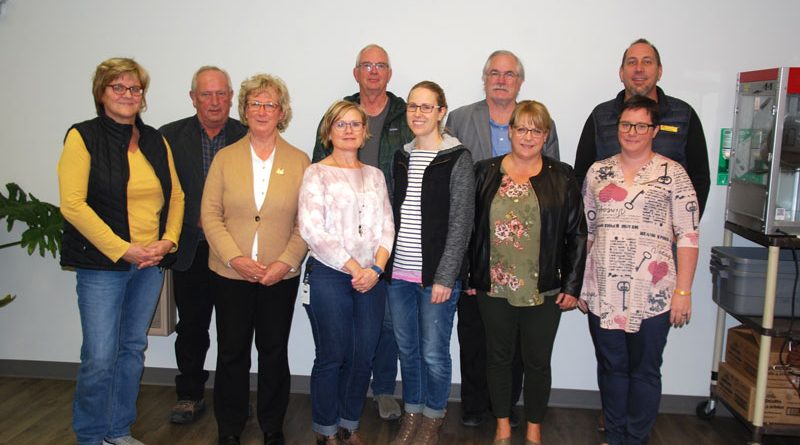Wheatland and Area Hospice provides update
By Brad Everett Times Contributor


Brad Everett Photo
“I’d like to emphasize here that members are not necessarily unhappy with services at the hospital; just that we hope to improve on all aspects of end of life care, not just in the hospital,” said McNeely.
The goals of WAHS is three-fold: to provide programs and services, support to families and facility development.
“Even though each one of these goals is no more important than another, it’s important for us (and you) to remember that this is a progression of goals, but not priorities,” said McNeely
Palliative care focuses on the comfort and care of terminal patients and can take place in a variety of locations (e.g. hospital, seniors’ facility or home), trying to make the most of the patient’s remaining days or months.
A hospice is a facility specifically dedicated to this type of care, where medical staff and volunteers provide this comfort care.
McNeely noted that many people in this situation want to stay in their homes as long as possible, but need extra support to make that happen which could come from a hospice facility. The newer term for this kind of care being “hospice without walls”.
It is this sort of facility, a hospice with beds, that could also function as a hub to extend assistance to those who wish to stay at home as long as possible, as well as programs to support family members, that WAHS is working towards.
McNeely outlined the extensive work the WAHS has done and is doing in terms of providing care and programs while developing policy and business cases for a proposed hospice facility in Strathmore.
The option WAHS has set their sights on is a partnership with the Wheatland Housing Management Body (WHMB) new lodge building project which would see three beds of the 165 proposed dedicated for hospice use for area residents. The Town of Strathmore has offered to donate the site of their current town office for the project. The annual operating budget for the hospice would be $650,000, provided through requisitions by the WHMB. This facility would allow WAHS to meet their goals of providing not only the care but the community programs for care and support they have determined are wanted and needed by area residents.
McNeely remarked that while this model isn’t the one being promoted by Alberta Health Services, she thinks the community could make it a reality. Given the support from WHMB, the fundraising projects by various service clubs and individuals, as well as the over 800 volunteer hours contributed to the programs WAHS is currently operating, it is hoped WAHS can show AHS this option is the right one for this area.
“Hospice encourages and empowers us to draw on our community values to do what comes naturally – to be compassionate, to be caring,” said McNeely.
